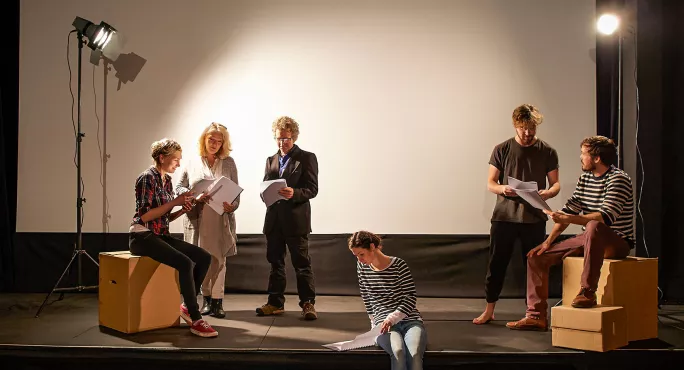Alison Peacock: School improvement drive has ‘almost gone too far’

Some teachers feel as though they have to “follow a script” due to the pressures of the accountability system, a teachers’ leader has warned, and cautioned that school improvement and efficacy may have gone “too far”.
“I really worry about those schools where teachers feel they have got to follow the script, that there is a right way of doing things - a perceived right way of doing things,” Dame Alison Peacock, chief executive of the Chartered College of Teaching, told the Primary Futures podcast this week.
When asked what pressures exist for teachers in less “joyful” schools, Dame Alison said, “everyone is constantly, metaphorically, looking over their shoulder to check that they are doing what they are supposed to be doing”.
“It’s almost like we’ve taken the lessons of school improvement and school efficacy and almost taken them too far,” Dame Alison warned.
Professor Sam Twiselton, a DfE adviser and teacher training leader who joined Dame Alison on the podcast, added that some teachers say they have “lost agency” because teaching can be so “scripted”.
Ofsted should celebrate school ‘support’ for staff
Speaking about the accountability system, Professor Twiselton said that more emphasis needed to be placed on schools “supporting” their staff and early career teachers - which should be celebrated by Ofsted.
She said that if the school accountability system has to have a “stick” element, it should “make sure it’s looking at how well schools are supporting their staff”.
- Early careers: Have new teacher training reforms upped retention?
- Policy: Is a knowledge-rich curriculum key to pupil outcomes?
- Trusts: CST calls for major change to school accountability
The teacher and ITT leaders’ comments come as Ofsted is due to announce the findings of its ‘Big Listen’ consultation, which sought views on reforming the inspection system after widespread criticism following the death of headteacher Ruth Perry last year.
Professor Twiselton also said there is a need for early career and trainee teachers to “get a sense of belonging” from schools and to feel that the reason they came into the profession “is being fed, rather than disappointed, which can happen”.
Her comments come after it was revealed that one-fifth of teachers who undertake the early career framework (ECF) leave after two years, according to government data published last month.
The accountability system should be “recognising” and “celebrating” professional support for teachers, she continued, and school leaders should be measured on it as much as performance tables, she said, adding: “I do think that’s achievable.”
Ideology can be at the ‘detriment’ of the teaching profession
Dame Alison also urged for “another layer” of experts “focused on curriculum development” to support the development of government education policy.
“It does seem that we need another layer, beyond the minister just having a whim about something,” she said.
“Potentially education ministers and secretaries of state can be persuaded and run with [a policy], sometimes to the detriment of the profession.
If we had a layer of expertise that’s really focussed on curriculum development, that would be helpful,” she added.
Former education secretary Michael Gove and the previous long-serving schools minister Nick Gibb were widely viewed to be too focussed on standards and accused by some in the sector of “narrowing” the curriculum.
‘Robot in front of the classroom’
The new Labour government said it wanted to see a “rich and broad” curriculum and has appointed Professor Becky Francis, chief executive of the Education Endowment Fund, to lead a review.
Dame Alison also said that educational research should be about “encouraging teachers to ask questions of their own practice”, and cautioned against the type of pedagogy that leaves teachers on their own “with the door shut”.
“It’s so fascinating to watch other colleagues teaching because everyone comes at things from different perspectives - you’re going to approach it in the way that is representative of who you are,” she said.
“Long may that continue because otherwise, you might as well have a robot at the front of the classroom”.
For the latest education news and analysis delivered every weekday morning, sign up for the Tes Daily newsletter
You need a Tes subscription to read this article
Subscribe now to read this article and get other subscriber-only content:
- Unlimited access to all Tes magazine content
- Exclusive subscriber-only stories
- Award-winning email newsletters
Already a subscriber? Log in
You need a subscription to read this article
Subscribe now to read this article and get other subscriber-only content, including:
- Unlimited access to all Tes magazine content
- Exclusive subscriber-only stories
- Award-winning email newsletters
topics in this article



